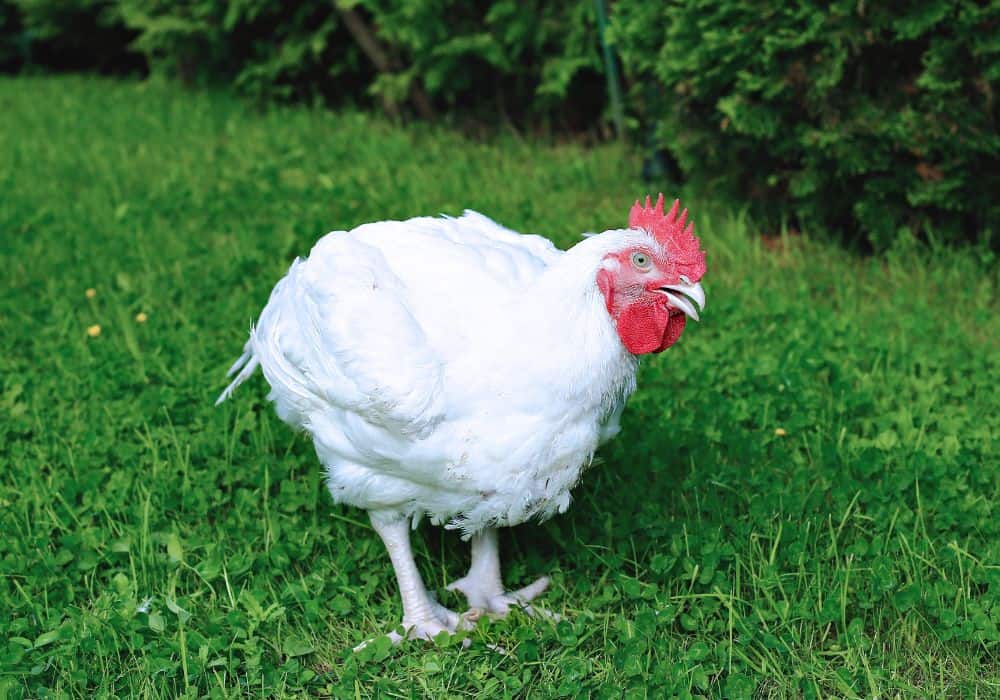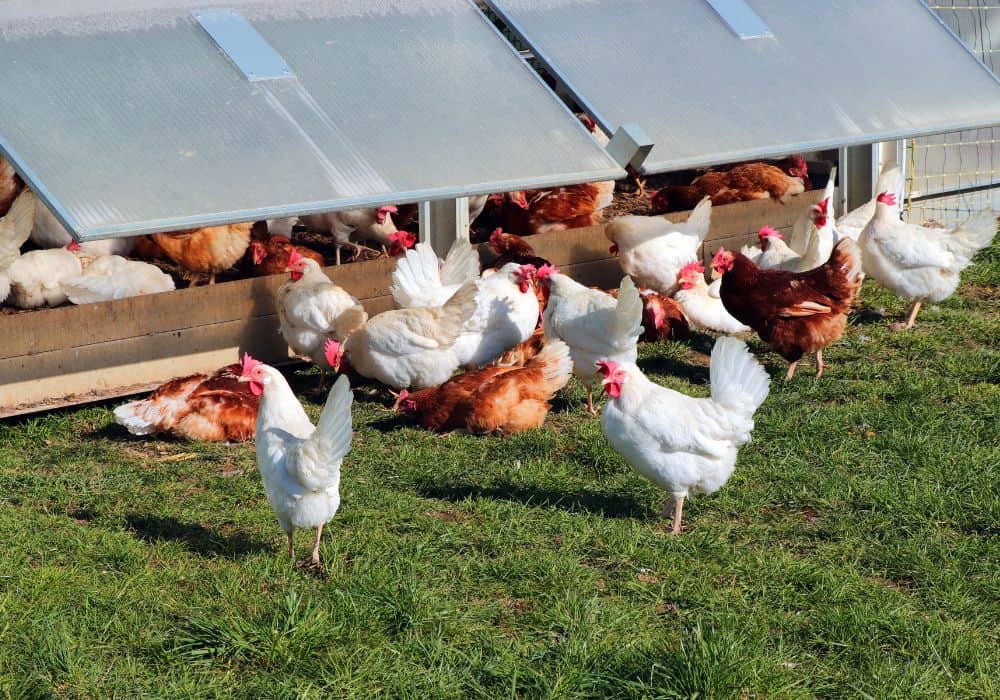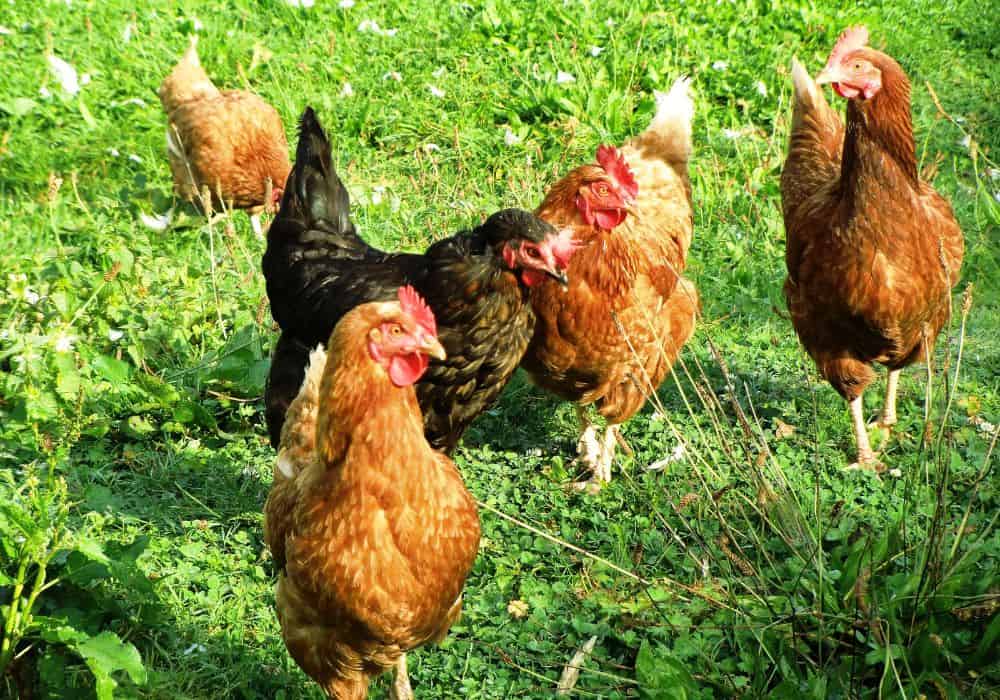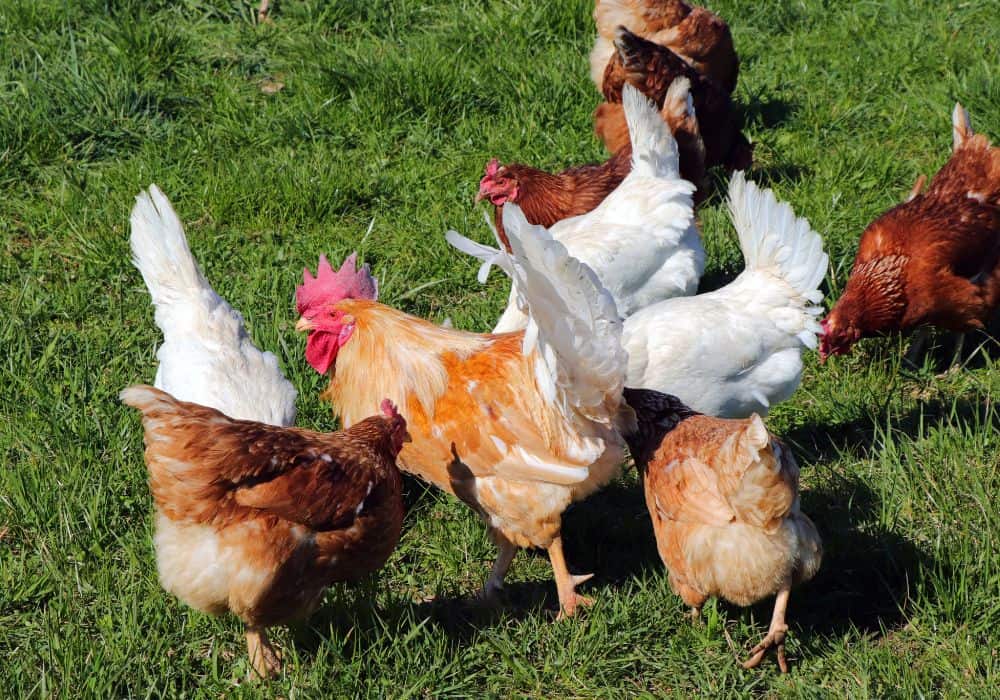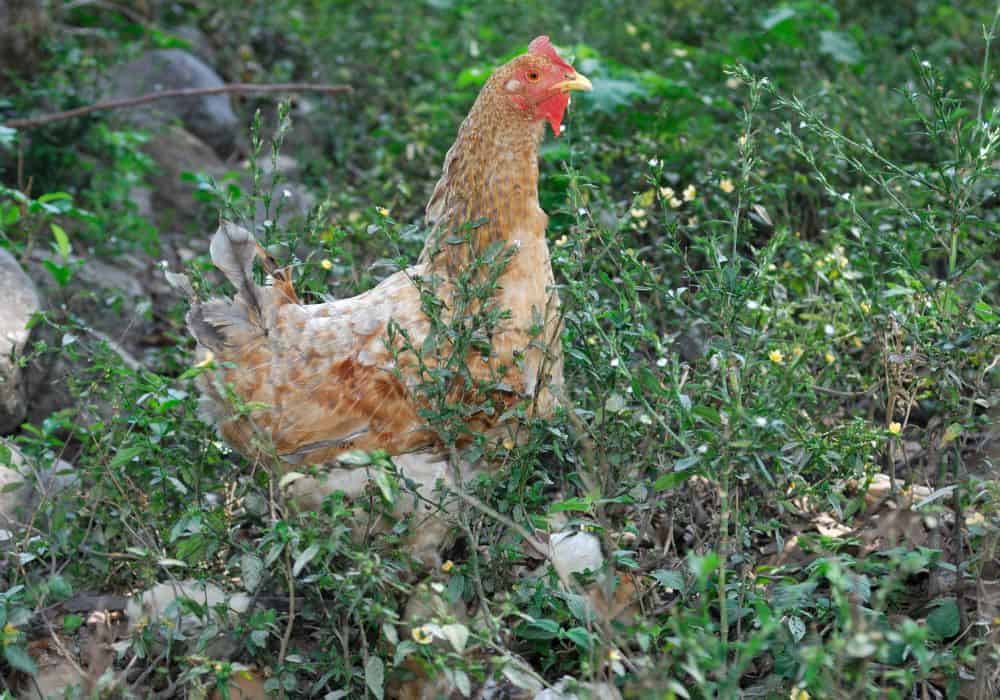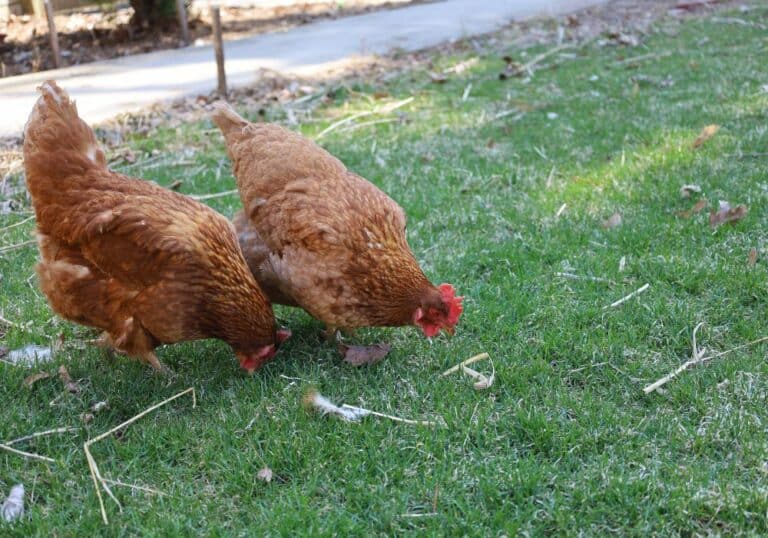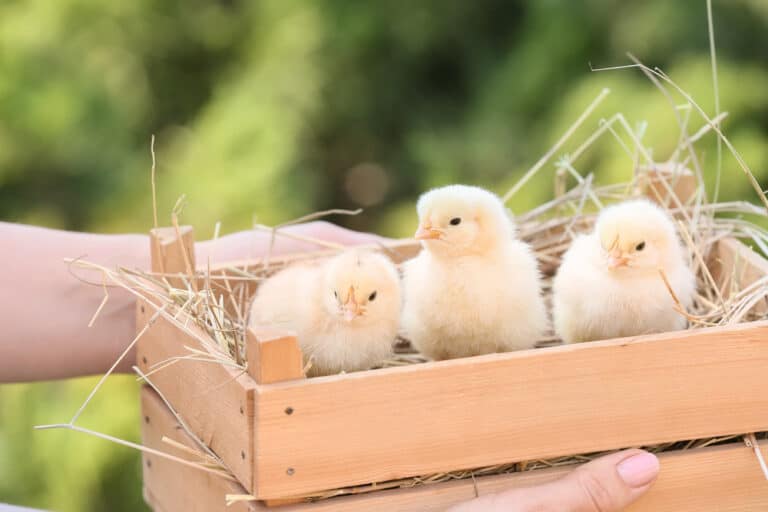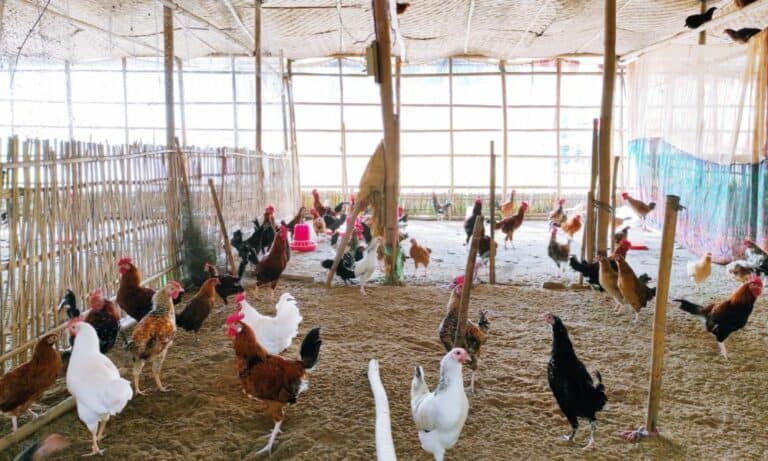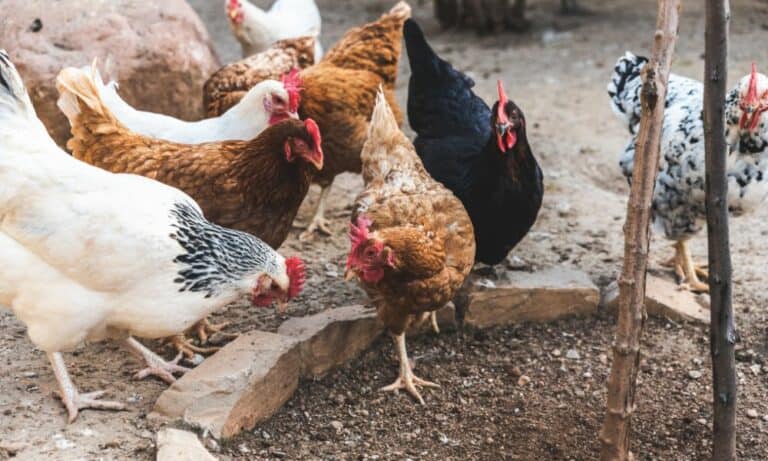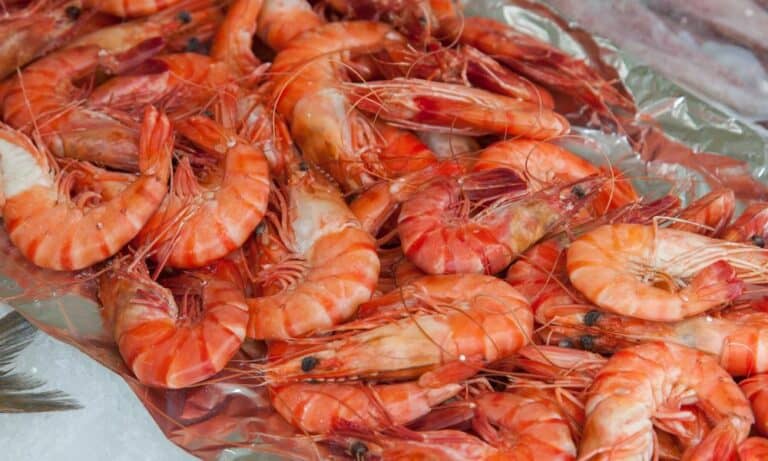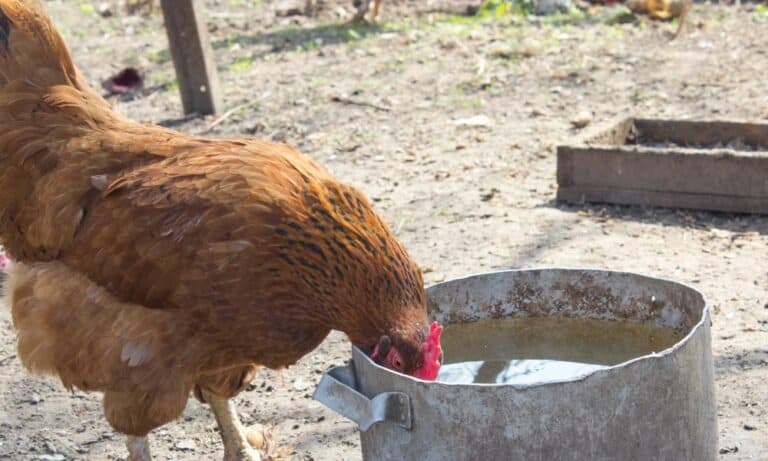It’s entertaining to watch free-range chickens have the time of their lives on grass. They’ll sit on the grass, maybe even scratch their bodies with it. Many chickens will peck at it with their beaks, trying to get a taste of this vibrant green plant riddling the ground in the yard.
But do chickens eat grass? Is it safe for them to consume? What benefits can chickens get from eating grass?
If you’re a chicken owner, you’ll know that it’s not uncommon to see chickens trying to munch on grass. Today, we’ll tell you whether this is anything to worry about, as well as how to properly and safely allow your chickens to nibble on grass as a snack.
These Natural Foragers Love Grass!
While many chickens are kept in chicken coops for most of the day, others are allowed by their owners to free-range. This gives them access to parts of the lawn where the grass grows. Not only will they get to breathe fresh air as they forage, but they’ll also be able to appreciate the grass.
Chickens are natural foragers, which means they go into the wild to hunt for meats like insects, bugs, worms, and more. And most of the time, these little creatures will be found in the grass. Sometimes, chickens won’t just eat the bugs. They’ll end up biting off a bit of grass as well.
Don’t worry about them foraging something that isn’t meat. Most chickens actually love grass! Not only are they yummy and healthy, but the fact that it’s organic and foraged naturally helps your chickens feel independent and happy.
What’s great about chickens eating grass is that they are intelligent birds that can tell which grass is good for them. They will naturally gravitate towards healthier, more nutrient-rich grasses and avoid dry, mature grass with no vitamins or minerals.
And don’t forget about weeds! Chickens can also safely consume weeds in your yard. If you find any broadleaf and other unwanted weeds, don’t go through the hassle of pulling everything out. Your chickens might do it for you to fill their tummies!
Grass Can Be an Alternative to Commercial Chicken Feed
Perhaps the biggest expense any chicken owner has to incur is their flock’s nutritional needs. Regular commercial feed is required in any chicken’s diet since this is where they get all their essential nutrients. However, this can get pretty expensive.
Grass is a terrific organic alternative to commercial feed for about 20% of a chicken’s diet. If you want to diversify your flock’s diet while cutting back on costs incurred for buying their expensive feed, grass is a great, economical option.
It’s always best to feed them grass in moderation. But to be honest, this usually won’t be a worry for chicken raisers. Chickens only peck at the tip of the grass, which means they won’t end up overeating and finishing an entire blade of grass.
Remember as well that chickens can’t live on grass alone as a treat. Give them a balanced diet by adding the occasional snack of berries, kale, cabbage, and other healthy fruits and veggies your chickens are sure to love.
Is Grass Healthy for Chickens?
Sure, the grass is safe and non-toxic for chickens. But does it have any health and nutrition benefits for your flock? Here are some advantages of feeding your chickens grass that you might be surprised to learn.
1. Protein for feather development and quality eggs
Many people will be surprised to know that grass is rich in protein. Chickens need protein in their diet for high-quality egg production as well as the development of their bodies—from their bones to their feathers. Allowing them to eat grass as a snack can increase their protein intake.
2. Vitamin C to fight sickness and stress
Green grass is also an excellent source of vitamin C. There is as much as 14.4 mg of vitamin C in wheatgrass, and about 25.4 mg of it in barley.
This vitamin is a must for bolstering the immune systems of your chickens. Vitamin C is the holy grail when it comes to boosting immunity and preventing the spread of disease in chicken coops. This is one of the most important nutritional benefits grass has to offer chickens.
Aside from protecting your chickens from getting sick, vitamin C can also lower their stress levels. It regulates stress hormones, keeping your chickens happy and healthy.
3. Minerals like iron, magnesium, and more
Grass also contains trace amounts of essential minerals, such as iron, magnesium, selenium, and zinc. These minerals work to improve the overall development of your chickens in different ways.
For example, iron is amazing for the formation of muscles and red blood cells in your chickens. Magnesium, on the other hand, boosts bone formation to make your flock stronger and your eggs more high-quality.
4. Dietary fiber for a healthy digestive system
Because of their high feed intake, chickens usually have sensitive digestive tracts. Diarrhea isn’t uncommon in the coops. But one way to prevent it from happening all the time is by feeding your chickens fiber-rich foods.
The grass is rich in dietary fiber, which can help improve your chickens’ gut health and regulate their bowel movements. Adding it to their diet will work wonders for preventing issues with your chicken’s delicate gizzard.
5. Yummier, more nutritious eggs and meat
Did you know that chickens that eat grass now and then instead of relying solely on commercial feed tend to have tastier and more nutritious eggs?
When a hen eats grass, its eggs are believed to have less cholesterol and saturated fat, and way more vitamin A, beta carotene, and omega-3 fatty acids.
Grass-fed chickens are also known to have more flavorful meat once they’re butchered. This is likely due to them being allowed to eat food straight from nature, not just commercial feed.
Fresh Grass Clippings are Best, Not Old, Mowed Grass
Chicken owners should be well aware of what type of grass is good for backyard chickens. To put it simply, grass that is still on the ground and freshly cut lawn clippings are best for chickens.
Chickens are smart enough to know how much grass they should eat when they’re pecking at it straight from the ground. You won’t have to worry about them overeating the grass because they will only eat the tips of the blades.
Meanwhile, freshly cut grass is softer, smaller, and greener than their mowed counterparts, which means they still have tons of nutrients in them.
However, huge, old grass clippings from your mower are not suitable for your chickens. These clippings are usually long, thick blades. They may end up impacting your chickens’ digestive tracts, making it difficult for them to break down.
As long as the grass is fresh and short in length, they are well-suited for your chicken flock. Watch these chickens have the time of their lives munching on vibrantly green, freshly cut grass:
When It Might Be Dangerous to Feed Your Chickens Grass
While most grass types and weeds are an awesome, nutrient-rich snack to give your chickens, you also need to be cautious about a few things. Here are two watch-outs when feeding your flock some grass:
When the grass is too long
The grass you give your chickens should only be an inch or two tall. Short grass usually means young, nutrient-dense grass. Taller grass isn’t just harder for them to chew; it also usually means the grass is mature and doesn’t have plenty of vitamins and minerals in it.
Just make sure you keep your grass short and cut all the time. Never allow your grass to grow taller than about 9-10 cm. That will be way too high for your chickens to peck at properly and enjoy.
When it’s sprayed with chemicals like pesticides
The next thing to watch out for is grass sprayed with dangerous, potentially toxic chemicals. In most homes, this will mean pesticides and herbicides.
You don’t want your chickens ever going near any patch of land that has been sprayed with nasty pesticides and herbicides, as these can be poisonous and detrimental to their health.
Plus, you don’t want to spray pesticides on your grass because it will kill the insects and bugs living in it. Don’t forget that chickens love eating these proteins!
If you do have to treat some grass with chemicals, make sure to build a moderately high fence around it to keep your chickens from nibbling on that grass.
Conclusion
Chickens love to eat grass, whether they’re still growing on the ground or have been freshly cut. The grass is rich in vitamins and minerals like vitamin C, protein, dietary fiber, iron, and more to improve your chicken’s health. It can even make chicken eggs and meat more delicious!
However, they will only eat young grass that is short and green. Mature grass is old while some mowed grass is dry. Both types of grass should be avoided when feeding chickens because they can cause issues like an impacted gastrointestinal tract or even choking in little chickens.
Don’t have any grass in your yard? Maybe it’s time to consider growing some year-round to give your chickens a healthy, nutritious, low-cost snack to munch on whenever they free-range. You’ll love how easy it is to feed it to them, and so will they!

